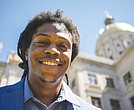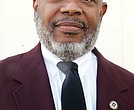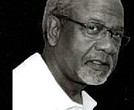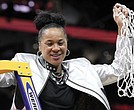Beating COVID-19
Delegate Delores McQuinn is on a mission to help others avoid getting the coronavirus after she and her family were stricken
Reginald Stuart | 4/23/2020, 6 p.m.
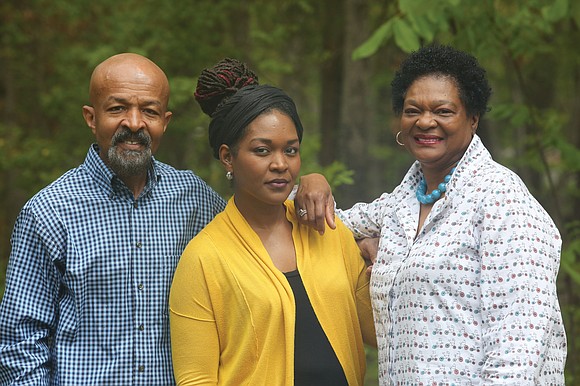
When Delores Jordan McQuinn was a promising youngster volunteering for voter registration efforts in the Bungalow City neighborhood of Eastern Henrico County, she would always do her best to get the word out — register and vote. She did so well that, one year, she was chosen Miss NAACP of Henrico County.
Delegate McQuinn, who now represents parts of Richmond, Henrico and Chesterfield County in the Virginia House of Delegates, has conquered many challenges since those days. They range from life-threatening Ku Klux Klan activities she remembers from her childhood to surviving a battle with cancer as a married mother of two.
Just last month, the 65-year old Delegate Quinn, who also is associate minister of New Bridge Baptist Church in Highland Springs, survived a scary battle with the deadly COVID-19.
“In the past, there were target groups,” Delegate McQuinn said in a telephone interview this week with the Free Press, referring to battles over racial segregation and integration and political contests between rivals.
But with COVID-19, “everyone is a target,” she said.
It attacks regardless of race, creed, color, ethnic origin, gender or religious or political belief.
“I have not experienced anything like this COVID-19 in my life,” she said.
In March, the McQuinn home became a quarantine and recovery refuge as her daughter, Daytriel McQuinn-Nzassi, 37, suspected she had COVID-19, which was soon confirmed. A few days later, Delegate McQuinn found out she, too, contracted the virus, quickly followed by her 63-year-old husband, Jonathan McQuinn.
Delegate McQuinn initially called a doctor and asked about her daughter’s breathing. If it became labored and too difficult for her to breathe, the doctor said, Delegate McQuinn should immediately take her daughter to a hospital. Otherwise she could recover at home with Tylenol to keep her temperature down and warm beverages and water to stay hydrated. The doctor also prescribed total rest, Delegate McQuinn said.
As the virus went through the McQuinn household, Delegate McQuinn and her husband experienced the same symptoms and followed the same path to recovery. It took from mid-March until early April before they began to feel like themselves again.
Today, Delegate McQuinn has a new campaign: To get more people to take the COVID-19 pandemic seriously or risk losing their lives as countless Virginians already have.
Following health leaders’ guidance may temporarily disrupt most people’s daily routines for a while, she said. But not heeding their call will certainly put your life at risk, she added.
“We are dealing with a different arena now,” she said. “It’s definitely a different world.”
She said she has been in countless phone and internet discussions with neighbors, church members and political colleagues about strategies to get people to heed the guidance from Gov. Ralph S. Northam, a physician, and state and local health officials to keep 6 feet away from others, wash their hands frequently with soap in the warmest water possible and stay out of public gathering places as much as possible.
Delegate McQuinn said she plans to spread the health alert and awareness about COVID-19 to her congregation and political constituents.
“The disease can do permanent damage to our families and communities,” she said, noting the warning is especially appropriate for people of color and low-income people who suffer from a disproportionate share of underlying diseases like diabetes, cancer, heart disease, high blood pressure and obesity that make them more susceptible to contracting the coronavirus.
Weakening of the body’s immune system due to aging is a challenge too, she said. At the other end of the life spectrum, clustering in crowds and excessive recreation leaves people vulnerable to catching COVID-19 by association, she said, echoing health officials.
“We’ve got to get the message out,” Delegate McQuinn said.
“This is a chilling disease.”
Recalling her early years of campaigning, Delegate McQuinn, a former member of the Richmond School Board and Richmond City Council, said she has spoken with pastors about getting involved with anti-COVID-19 appeals just as they did with voter registration drives in the past.
She talked about riding in vehicles through neighborhoods and using a bullhorn urging people to abide by appeals from health officials and Gov. Northam to stay home if possible and adhere to the basics to mitigate the spread of the virus. She said she has shared thoughts with some peers about getting the broadcast and cable services to air public service announcements.
Meanwhile, her recovery from COVID-19 has progressed so well that she attended Wednesday’s reconvened session of the General Assembly to take up the governor’s changes and vetoes to legislation.
Delegate McQuinn said she understands the economic slide the state has experienced with the coronavirus disruption means revenue will be far short of what was envisioned at the start of the year.
She said education aid, further expansion of Medicaid health coverage and a long-awaited boost in the state’s minimum wage, all issues important to her agenda and constituents, may have to wait despite the passion for action. Because of the revenue outlook with the pandemic, people are not likely to see any new programs of substance “for years,” she said.
Still, giving front line health care workers and others in the low-wage, but “essential” category a boost in hourly pay remains a front-burner item, she said.
“Delay does not mean denied,” Delegate Mc Quinn said, suggesting the legislature may take some action later this year. “Right now, under the circumstances, I clearly understand,” she said, adding that she will be pushing the wage issue again.
Meanwhile, the center of attention for her today is fighting the spread of COVID-19.
“There are going to be losses, great losses,” she said.



